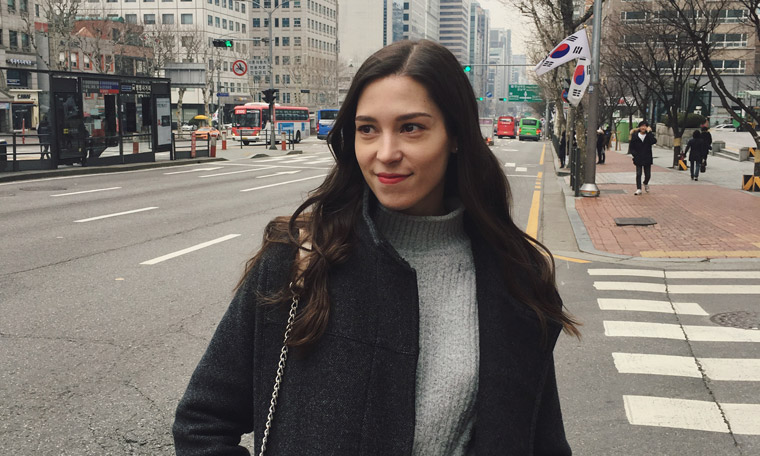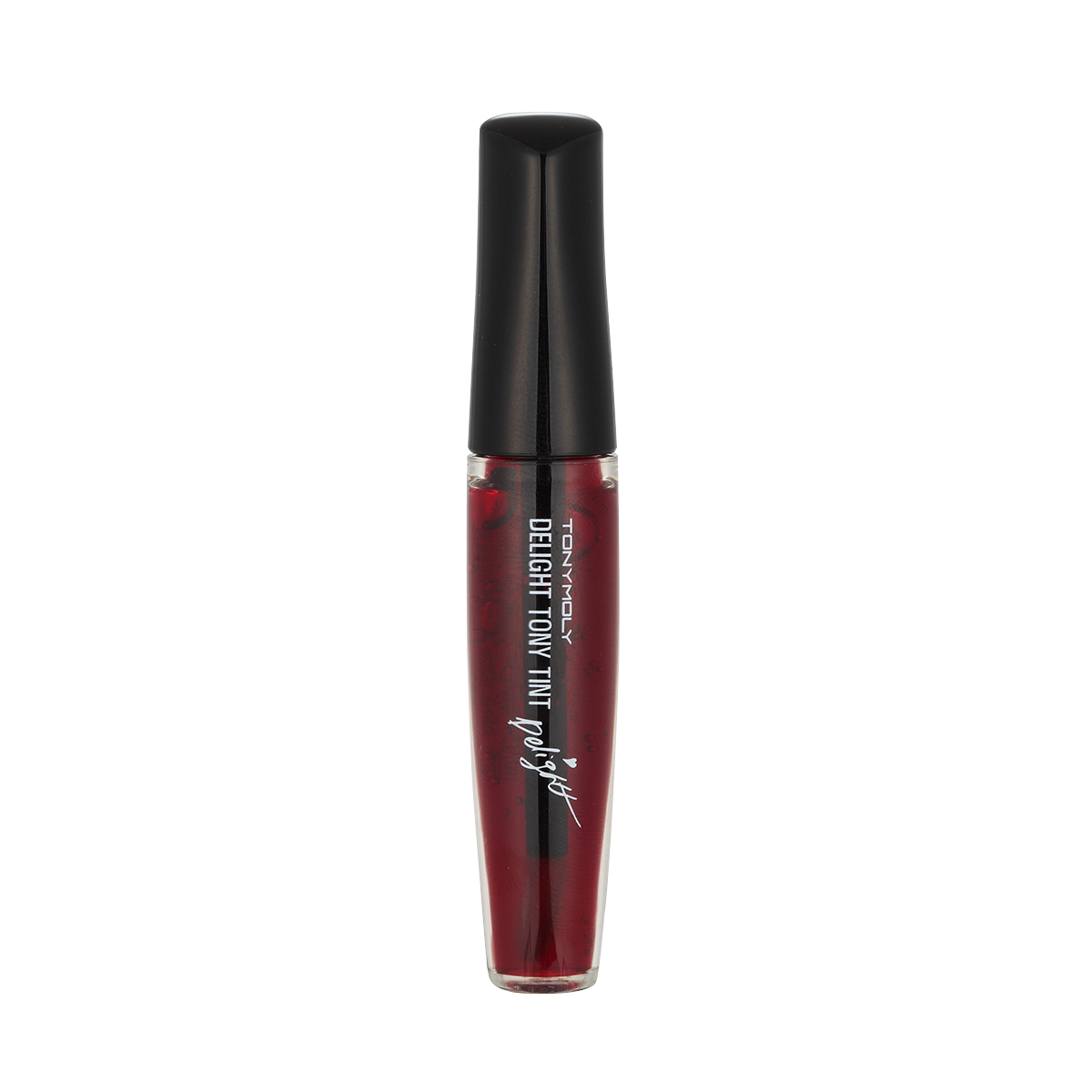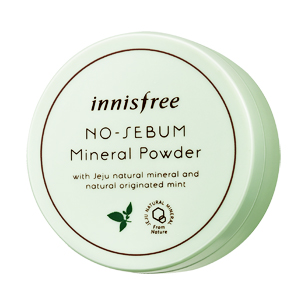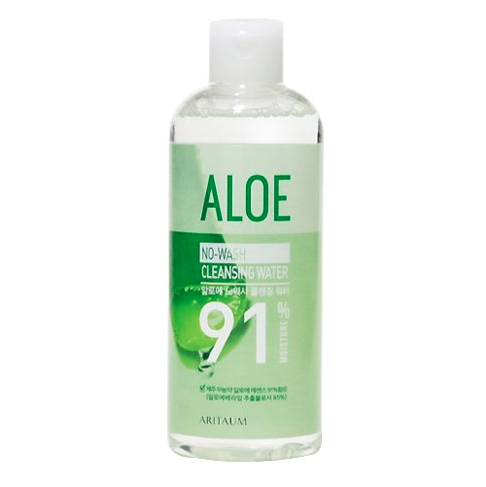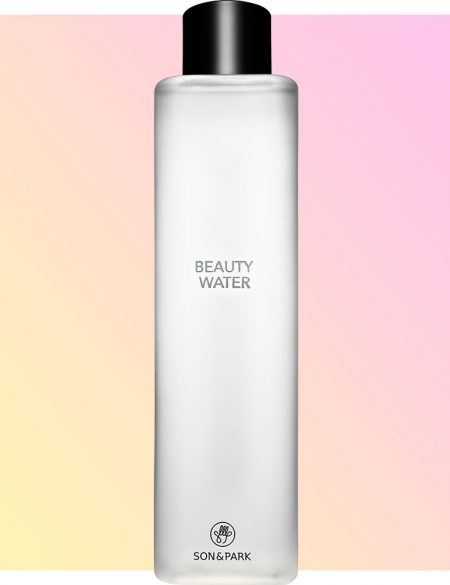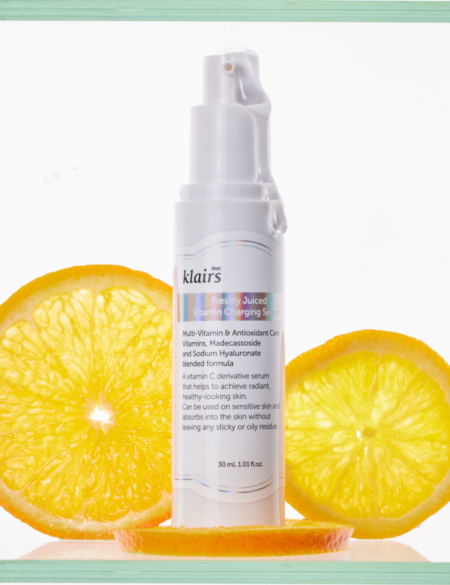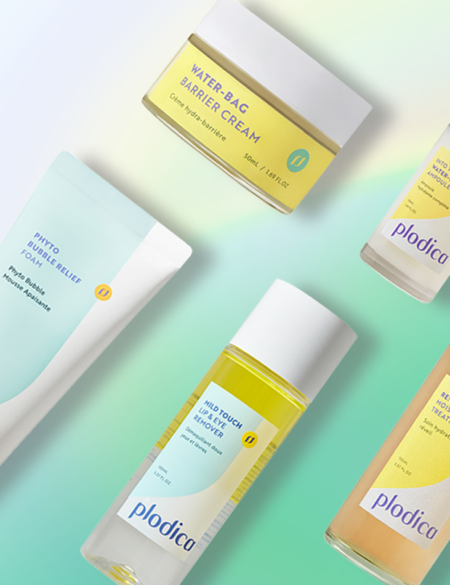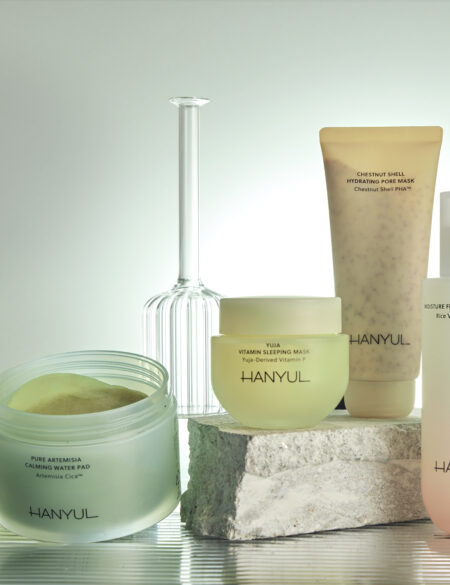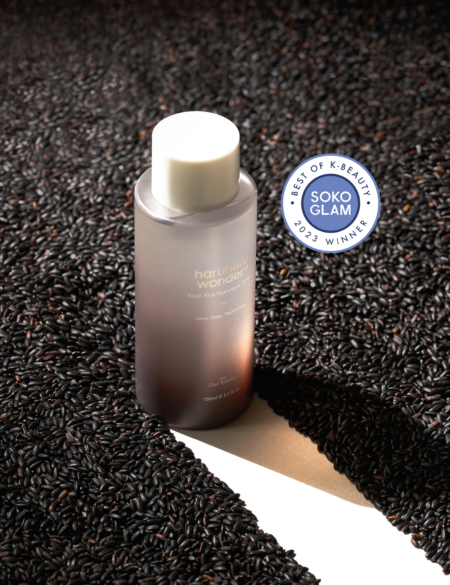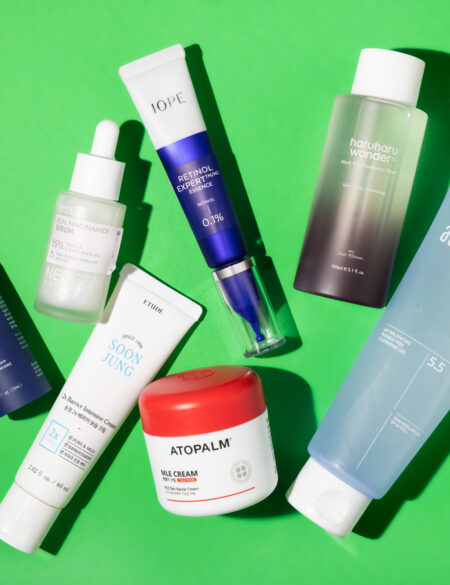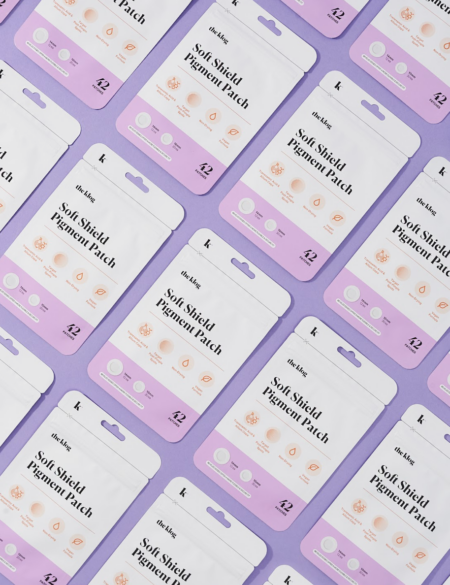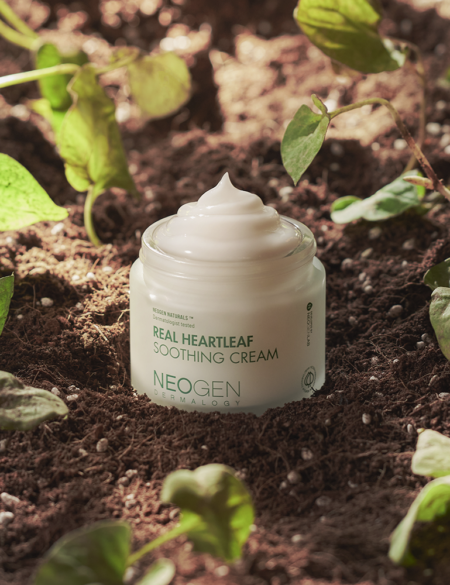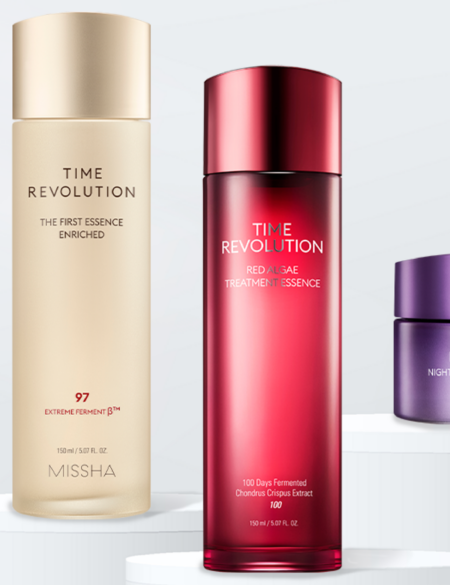Welcome to Soko Secret! Here, we shine a light on the people living in Korea who inspire us. Whether it’s straight from the streets of Seoul or another part of the country, their approach to beauty and style will impress you. Read on to see how the Korean skin care routine changed this Canadian blogger’s life.
This week, we’re chatting with Sarah from 2hearts1seoul. Sarah moved to Korea from Halifax, Nova Scotia in July 2011 to teach English. She planned on staying only for a year, but then, she met her future husband, Kyuho. Fast forward to nearly six years later, and Sarah and Kyuho now have a YouTube channel called 2hearts1seoul with close to 100,000 subscribers. Together, they vlog about food, travel, life in Seoul, and of course, their adorable cat Beemo.
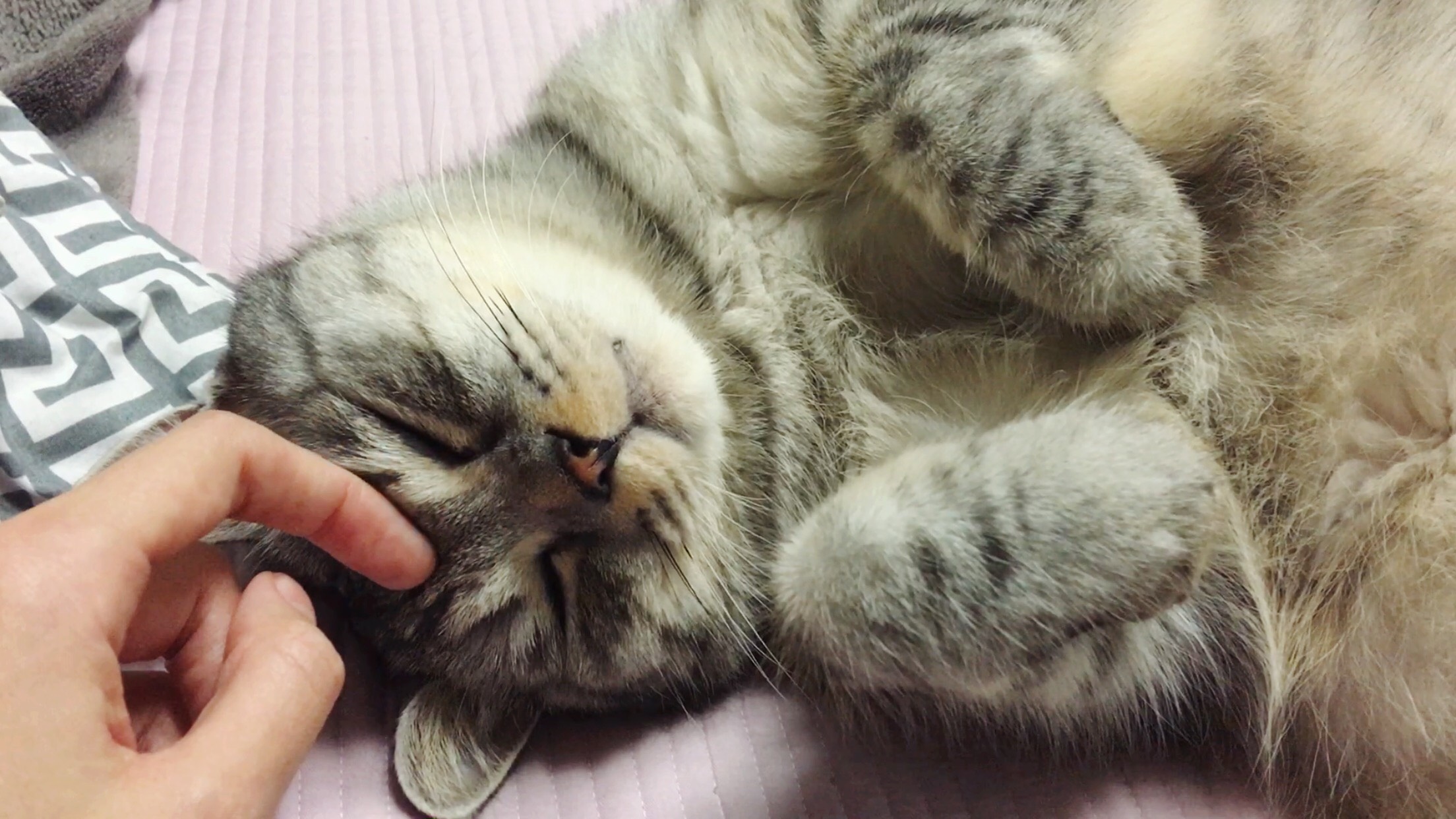
Find out how Sarah altered her skin care routine after her big move.
What was your first skin care breakthrough moment?
Before I came to Korea, I didn’t realize that I was using a lot of harsh products. My skin would burn, and I was so used to that feeling that I thought that meant my products were effective. Once I moved to Seoul and started using Korean products, I realized that skin care products are supposed to make your skin feel moisturized and calm without any harshness or dryness.
A lot of people are intimidated by Korean beauty at first. Were you?
Yes. Before I moved to Korea, I didn’t know much about the skin care aspect of Korean beauty. All I had was an old version of a Tony Moly tint I bought on eBay. When I moved to Korea and found out about Korean skin care, I thought, who has time to do all these steps? I didn’t know what a first essence or an emulsion was, and it took so much trial and error of going to cosmetic stores, picking through products, and guessing what would work for my skin. I went on Reddit, watched YouTube and Get It Beauty, and looked at mobile beauty apps to find out what products to try.
Luckily, ‘road shops’ like Innisfree and Nature Republic are everywhere in Korea, even in underground subway stations. Some products even have signs or stickers that say ‘Beauty Award’, so you know what’s popular. For what they are, Korean skin care products are so affordable, and something comparable in Canada would be very expensive. There are also so many dermatologists in Korea, and the market is so competitive that dermatologists are accessible and even affordable.
How long did it take to see results?
Once I started keeping a routine, I saw results after about two months. First, my pimples started to go away. And then redness and discoloration started to fade, and I noticed my skin was becoming more even and brighter. I didn’t have to wear so much foundation anymore because my skin was healthier, so I was saving time on my makeup application. And once you start noticing results, which you do if you follow the Korean skin care routine diligently, you don’t want to give up.

What do you think is different about Korean beauty?
One big difference is that Korean women start anti-aging way earlier than women in North America. In Korea, women start using anti-aging products in their early or mid-twenties, while in Canada, women don’t think they need to start until they’re in their forties or fifties, at which point they’re treating the wrinkles rather than preventing them.
Another difference is that Korean women are also a lot more afraid of the sun. I like to go out and get some sun in spring and summer, but Korean women carry sun umbrellas everywhere.
Also, Korean women’s number one focal point in makeup is skin. And they like the dewy finish, so even if you think you look a bit shiny, it’s okay. Back in Canada, I used to be so fussy about blotting my face, but now I only use powder on my T-zone and blotting paper in the summer.
Because Seoul has problems with pollution and yellow dust, I learned to use a cleansing water after I double-cleanse to get everything off from my face. Otherwise, I feel like there’s a kind of film on my skin, and my skin produces more oil.

What was your skin care routine back in Canada?
I’d wash my face with a cleanser and put on a face cream and maybe eye cream if I was feeling fancy. My entire routine would take no longer than five minutes, and I thought I was being so careful taking care of my skin. Now my Korean skin care routine takes 15 minutes in the morning and 20 minutes at night.
Do you miss any Western products?
No. Aside from my Maybelline mascara, I’ve replaced everything with far better quality products.

Now that you hit your 30s, if you could go back in time, what skin care advice would you give to your younger self?
Wear sun cream on your face everyday, no matter what season. I never used to do that in Canada because the mindset was that you only need to wear sun cream on your face if it’s summer or you’re at the beach. But since I came to Korea and started the Korean skin care routine, I’ve been wearing sun cream every day of the year, even if I go outside for five minutes, and my skin is way brighter and even than before.
What’s your favorite thing about Korean beauty?
Korean emulsions and serums absorb into your skin so fast. A lot of American products, after you put them on, just sit on your face, no matter how much time goes by. But a lot of Korean products just seep into my skin so my makeup applies much more smoothly afterwards.
I’m also noticing Korean beauty is changing so fast. In the past, brands only made two or three shades of foundation, but now they’ve expanded their selection to offer more colors than they used to. It helps foreigners coming to Korea try their products, but a lot of Korean women are also embracing the wider selection of colors and moving away from wanting to be the same exact, pale shade. There’s so much individuality in makeup looks, too, whether it’s in eyeshadow colors, eyeliner wings or the kinds of tints people use. Because the colors and styles are diversifying and there’s so much to choose from, there’s more room for experimentation.

Sarah’s complete Korean skin care routine:
- Aritaum Apricot Seed Deep Cleansing Oil: “It’s so much product for an amazing price.”
- Innisfree Olive Real Cleansing Foam: “Even when my skin gets a bit dry, it doesn’t strip the moisture from my skin. If it’s summertime, I switch out the cleansing foam for Innisfree Jeju Volcanic Pore Scrub instead, which is a gentle exfoliator I can use every day.”
- Aritaum Aloe No Wash Cleansing Water: “I’m on my ninth bottle of this.”
- Hada Labo Gokujyun Clear Lotion: “It’s a Japanese product that’s super popular in Korea.”
- Innisfree Green Tea Seed Serum: “This has been my favorite for over four years. It works for any skin type, and since I started using it, I don’t get as much redness around my nose.”
- Innisfree Eco Science Eye Cream: “This is my favorite eye cream.”
- Nature Republic Snail Solution Emulsion: “At first, I was reluctant to try the snail mucin trend because it sounded gross. But I decided to give it a try, and now I’m on my fourth bottle.”
- If it’s daytime, the A’pieu Pure Block Aqua Sun Gel: “It has a thin texture with no white cast.”
“My skin type is normal to slightly dry, so if it’s wintertime, I add a few drops of Now Foods Organic Rosehip Oil to my serum for an extra bit of moisture. If I feel need more oil than that, I use Vant 365 Lifting Face Argan Oil. I sometimes add a sheet mask at night, and my go-to is Innisfree Manuka Honey Sheet Mask. It’s really moisturizing, and when my skin is dry, red, and irritated, this sheet mask makes my skin so soft and calm the next morning.”

Follow Sarah and Kyuho on their YouTube channel, 2hearts1seoul.


